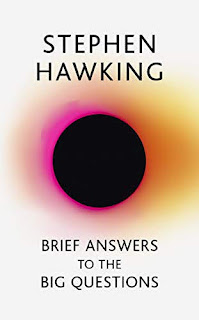The Power of Reconciliation Justin Welby
‘In a satirical political sketch, one of the leading politicians says words to the effect of, ‘If you feel offended by my accusing you of fraud and treason, then I am sorry.’ A genuine apology would be: ‘I accused you of fraud and treason, I was wrong. Please forgive me.’ Yet the ‘non-apology apology’ is the most frequently used. Anything that begins with ‘if’ and puts the blame for being offended on the victim is a non-apology. Anything that leaves the more vulnerable trapped into being manipulated towards forgiveness is not an apology’. This is a timely and clear illustration on asking forgiveness in Archbishop Welby’s magnum opus ‘The Power of Reconciliation’ published in advance of this year’s Lambeth Conference. Another topical feature is the Virgin and Child on its inside page sketched in the frozen terror of Stalingrad, resonant of Russia’s anguish in World War Two. The book went to print just before the invasion of Ukraine so its celebration of a Russian aspect of peacemaking is poignant. The Archbishop writes about peacebuilding and reconciliation ‘in the sense of seeking relationships at all levels of human life that are resilient enough to have disagreement without destruction, victory without triumphalism, concessions without degradation. Reconciliation is the long drawn-out process, extending sometimes over generations, which seeks to achieve that end. Peace is not found by avoiding conflict but by disagreeing well’. The last phrase about achieving good disagreement is a refrain throughout the book.
Justin Welby, like myself, served as parish priest in Coventry Diocese and moved on to lead the Cathedral’s ministry of reconciliation. In that role, building from his previous career in the oil industry, he was to help riven communities in Nigeria with his quiet passion to help build bridges across the sectarian divides in that and other lands. ‘The Power of Reconciliation' is a celebration of peacebuilding in which there is recognition of difficulties alongside recipes for making reconciliation concrete through establishing robust diversity and disagreement without hatred. Many of us in the Church of England experienced his genius in this realm after he was made Archbishop, inheriting a serious division about which he writes: ‘In the difficult discussions within the Church of England over the question of ordaining women as bishops, the biggest step was to imagine that a way forward could be found. In some of the conversations, several groups were involved. In one of them the facilitator was obviously pushing a solution. It led to all sides digging their heels in. The facilitator was not arrogant or bad at their job, but they were desperate for progress and sought to take things faster than was the mood of the participants. By contrast, earlier in the process, after a major setback, all and sundry spoke of needing five years at least to chart a way forward that ended taking less than two, owing to the desire by all concerned to find such a way. The setback opened the way to progress.’ I found it significant, given the increasing misrepresentation of those of us allowed in this settlement to dissent from the change, that Justin Welby’s new book puts emphasis on reconciliation as nothing ‘one-off’ but something ongoing on every side. A dismal reality, found where God’s grace cannot reach and a striking feature of the current debates around sex and gender and transgender as well as about the levels of racism in the UK, is that, for some people, those who disagree with them are seen not just as wrong, but as evil. Hence the alarming threats and abuse of individuals involved in these debates on social media.
The author writes both as a Christian and as one concerned about a fractured world. His vision is stated to be one with C. S. Lewis’s book The Great Divorce which portrays hell as a place filled with those without hope and with regrets, and heaven ‘a place of ever-growing joy in an ever-greater place, journeying together in forgiveness and hope to an ultimate destination. The journey begins in pain, with the reality of heaven making even grass as sharp as glass, but eases as progress is made’. He writes: ‘I remember being asked when I worked at Coventry Cathedral why I bothered with reconciliation involving people who were not Christians? Should I not be preaching the gospel to them? My answer now would be that I was preaching the gospel and that I worked in those circumstances and places, and still do, because when I get there I find God at work, and I join in to learn. To put it less informally, the creative and sustaining work of God is revealed in Jesus Christ, the Prince of Peace. In Colossians 1.15-20 St Paul speaks of the cosmic Christ in whom ‘all things hold together’… and ‘through Him God was pleased to reconcile all things, whether on earth or in heaven, by making peace through the blood of his cross’... ‘Everything’,‘all things’, the piling up of words indicates Paul’s passionate proclamation of the truth of Christ. The human ministry of peacemaking is, consciously or unconsciously, worked out in the day to day, by human beings imperfectly and partly, seeking the glorious reconciliation of all things that is the purpose of God’.
This review is a taster of a work full of practical wisdom about the humble ministry of reconciliation and its cost, insight about researching situations of conflict, listening to all sides, being present to others, oneself and God, keeping faith in his possibilities.
Canon Dr John Twisleton 13 May 2022
The Power of Reconciliation Justin Welby
Bloomsbury 2022 £17.99 (hardback) ISBN 978-1399402972 304pp




Comments
Post a Comment